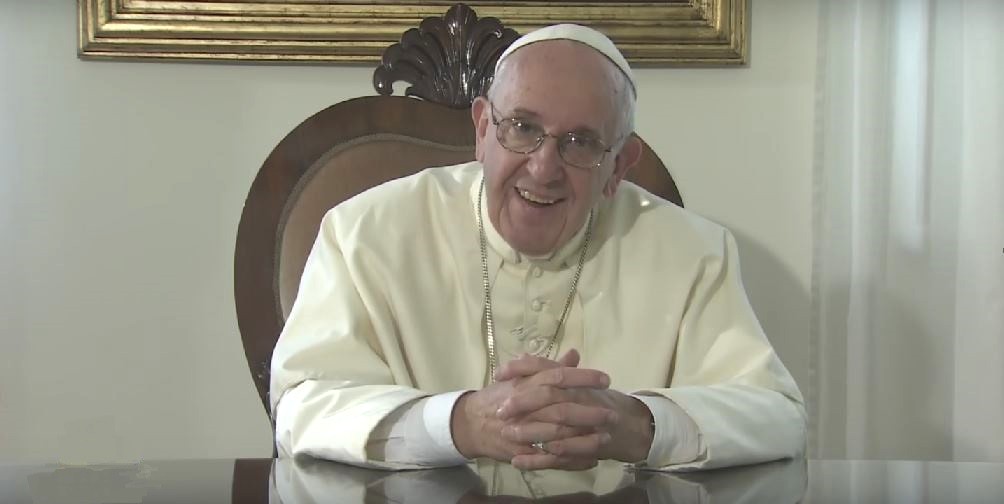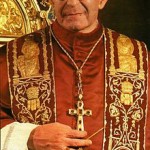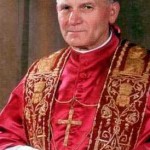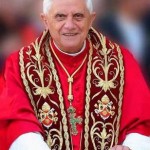
Francis: A Pope very different from his predecessors
HAVANA — When on Aug. 26, 1978, the Patriarch of Venice, Albino Luciani, announced his election to the throne of Peter under the name of John Paul I, his first utterance to the crowd gathered at the Vatican to receive the new Pope’s blessing was that, if he had known in advance, he would have prepared better.
That was the spontaneous gesture of a simple man willing to reactivate the innovations of Vatican Council Two and cleanse the temple of all atavisms and scandals. A dramatic death put an end to his papacy one month later.
Thirty-five years later, the Argentine cardinal who decided to call himself Francis, in a gesture that reminded me of his predecessor from Veneto, humbly asked another crowd in the same place to bless him so he could carry out his great mission.
All the manifestations of his behavior in the past two years of his papacy appear fully consistent with the simplicity he has shown from the beginning, a virtue that has always been part of him.
The turn of the century that separated those two Popes was marked by the deep footsteps of the controversial John Paul II, who traveled to almost every country in the world. As is known, John Paul II arrived in Cuba in 1998. In the preceding 20 years, he had toured the entire Latin American and Caribbean continent, a land with a mostly Catholic tradition.
This allowed him to come to the island with enough background to make comparisons, especially about poverty and abandonment, inequality, submission to the market, social justice, the spread of violence and the protection and safety of human life.
Questions are always raised about the impact of that visit on Cubans, but one might also ask about the influence on the cupola of Catholicism by John Paul’s direct contact with that reality, its virtues, its limitations and its defects, with the achievements for the living conditions of the Cuban people, and about dreams and frustrations. The place of Cuba in the referential schemes of the Vatican may have changed.
The impending visit of a third Pope — something that many call a record, which doesn’t say much — will be made by a shepherd who decided to keep “the odor of sheep” as a hallmark of his papacy. He is a very different Pope from his predecessors, and that is truly important.
He is someone who knows the Cuban reality, who accompanied Wojtyla in 1998 and published his impressions as an introduction to a compilation of the speeches by John Paul II and Fidel Castro. A well-balanced and serious analysis that today seems to turn controversial.
It seems to me that the first requirement for any judgment that may be made in advance is to know — to some degree — the Pope who is about to visit us.
From Bergoglio’s arrival at the Holy See, note was taken that he was the first Latin American Pope and that, for the first time, a member of the Society of Jesus had been elected to the papal throne. That initial observation makes me think that with him could begin a turn in the papal succession toward this hemisphere, after so many centuries of European (mostly Italian) papacies.
This may turn out to be anachronistic, since Latin America has already become the epicenter of Catholicism. It will likely be something that will be breathed in a conclave with opposite views.
The fact that Bergoglio is a Jesuit is significant because never before had a disciple of Loyola elected as the helmsman of the fisherman’s boat. It is because of the internal cohesion of that congregation that many people assume (irrationally, not absurdly) that the Society of Jesus could gain a disproportionate influence over the whole of the Church.
In any case, what happened in the 2013 conclave suggests that the insertion of the order into the curia could create a precedent, not only in the actions of the Vatican bureaucracy but also in the style of the Society of Jesus. Not as a trend that could be connected with Catholic demographics on a worldwide scale.
So far this year, the second year of his papacy, Francis has issued epistolary examples of the consolidation of his task. Here are three of them.
The first is his apostolic exhortation Evangelii gaudium dated November 2014, which reminds us that “most men and women of our people live a precarious day-to-day life with terrible consequences.” The document asks us to reject “the economy of exclusion,” “the idolatry of money” and “the iniquity that generates violence,” advocating for the social sense of evangelization and the primacy of humanity’s welfare.
In terms of substantive documents, the most revealing so far is the encyclical Laudato si, dated June 2015, which goes beyond the habitual environmentalist formulas to identify the “domination of man” — given to man over universe in the book of Genesis — as “responsible management.”
It proposes an organic conjunction of the social project of human survival, justice, solidarity and equality and the restoration of the natural environment, of which humanity itself is a part.
During his visit to Bolivia in July, Francis addressed the social movements in Santa Cruz de la Sierra when he proclaimed “the globalization of hope against the globalization of exclusion and indifference.”
A bold and radical moment occurred when he launched three tasks, i.e., placing the economy at the service of the people; uniting our nations on the road to peace and justice; and defending Mother Earth, a task that he described as most important.
“Our task is revolutionary,” he affirmed. “It defies the tyranny of the idol of money.” And he added that the future of humanity “is fundamentally in the hands of the people” and that the Church must stand on the side of the people.
More than ever in history, the discourse, pastoral role and entire life of a pontiff who sided with the people was revealed with this intensity and determination. Surely, Francis of Assisi would have liked that.
Francis now comes to Cuba at a time when the Cuban State is in the midst of a process of exchanges to normalize relations with the United States, beginning with talks to which Francis’ Vatican contributed.
To Cuba, the elimination of the U.S. blockade is a necessity and a right of elementary justice. And that’s the opinion of all the states that condemn the blockade every year at the United Nations General Assembly.
From Cuba, Peter’s successor will surely reiterate his position in favor of an end to the blockade, in addition to his views on the pastoral role of the Cuban Church. In Washington, that issue should also be on his agenda.
But I think that the topics of U.S. responsibility for environmental decline and the urgent need for the world’s economic centers to commit themselves to reduce the gases that cause the greenhouse effect, desertification, the water crisis and all forms of natural damage will be at the center of his talks. His speech to the U.S. Congress is an unprecedented diplomatic challenge.
I believe that, at the General Assembly, he will bring up the issue of effective channels to a generalized climate of peace throughout the world. More specifically, violence in the Middle East, the traffic in humans and migratory policies.
Some might say that I’m predicting an agenda that is not proper for the Church and I say that Francis will know what to do. Has the Pope converted to the Liberation Theology? I believe that he’s building his own doctrine, because the Church cannot avoid taking a stance on global issues.
The placing of nations in the orbit of capital has become anachronistic. Leonardo Boff, one of the most lucid Christian thinkers in our America, maintains that Francis is a guardian of the tradition of Jesus more than a guardian of Catholic doctrine. Doctrine, he says, is an invention of theologians.





